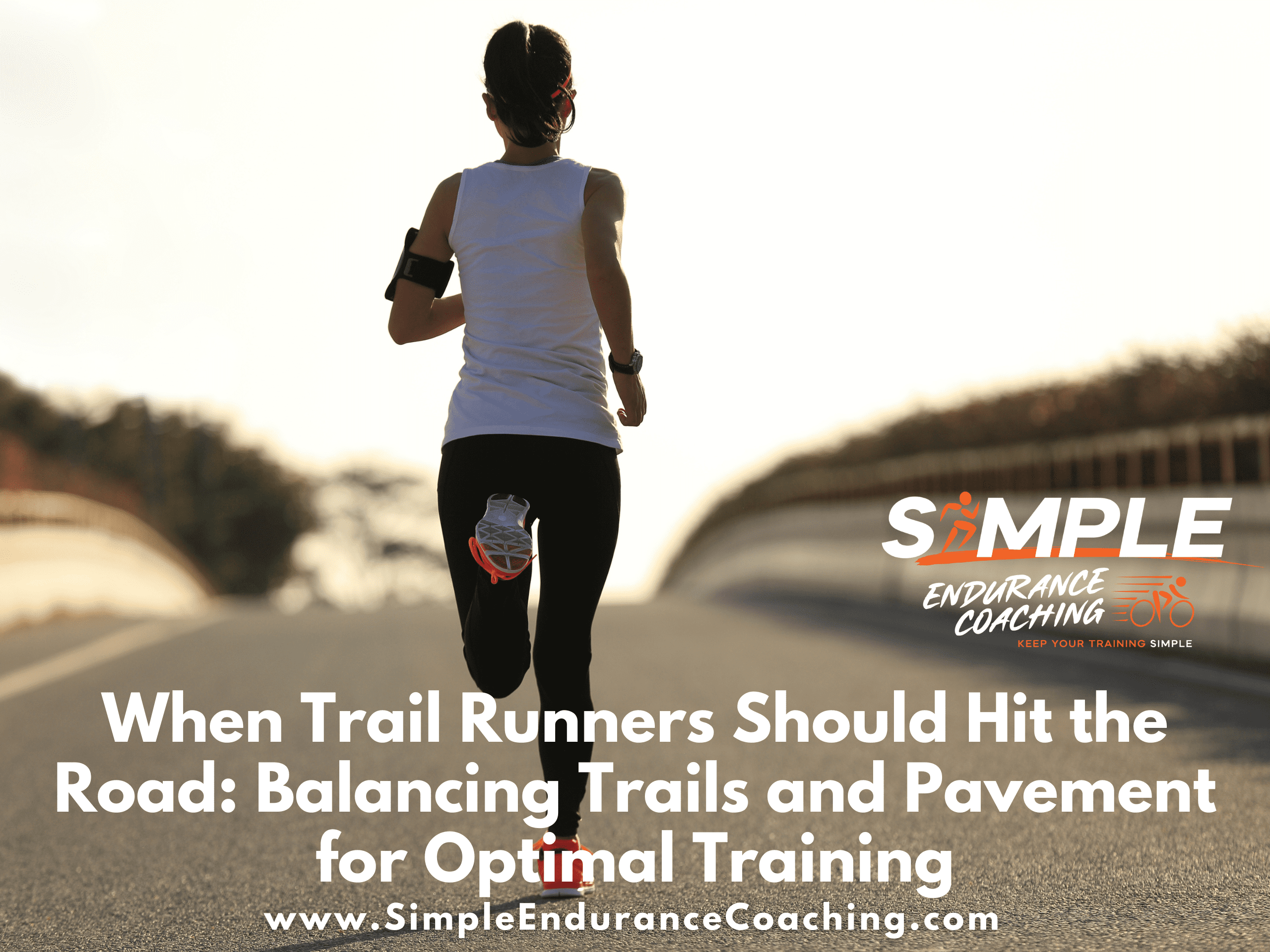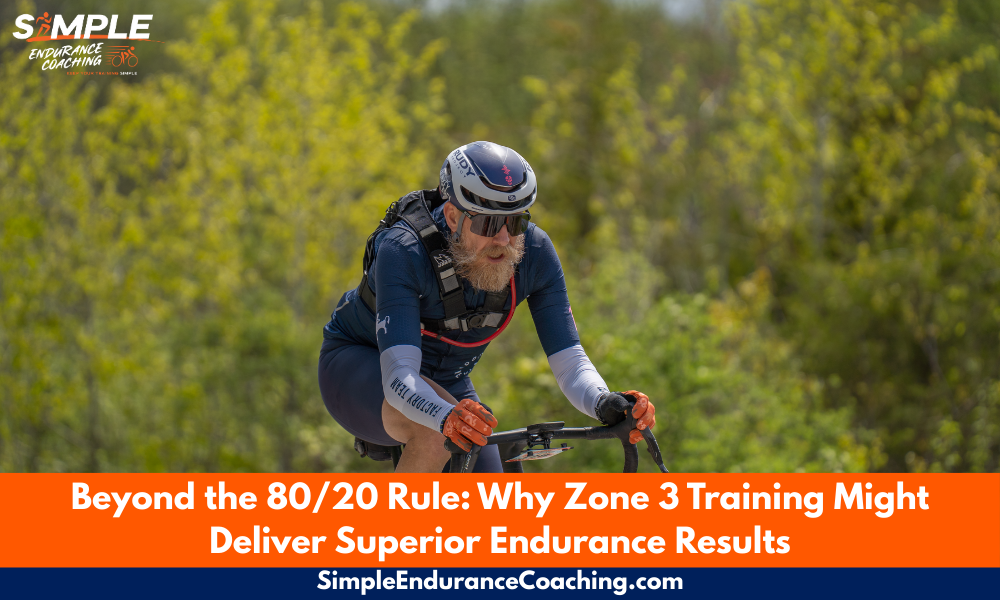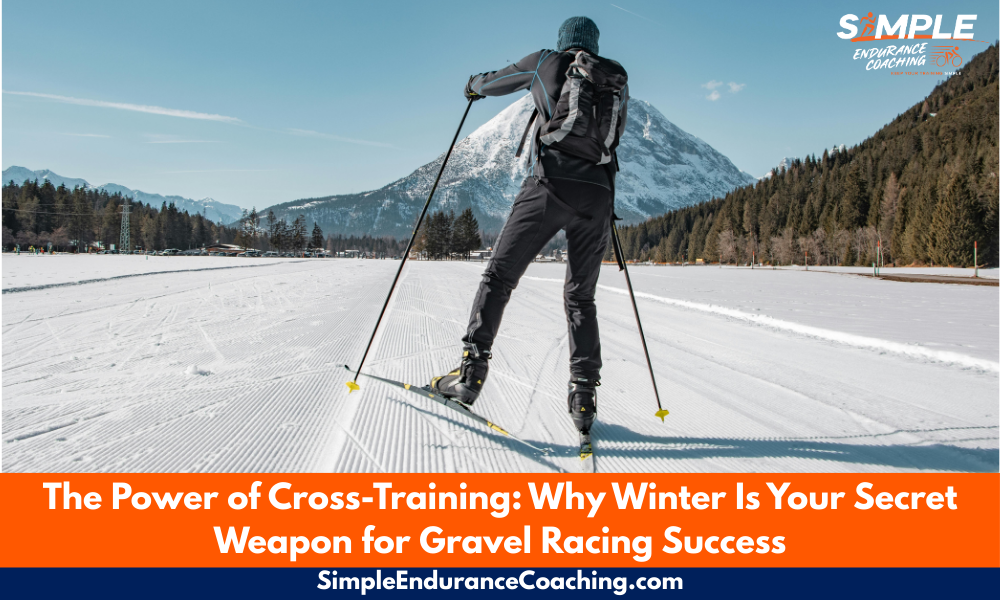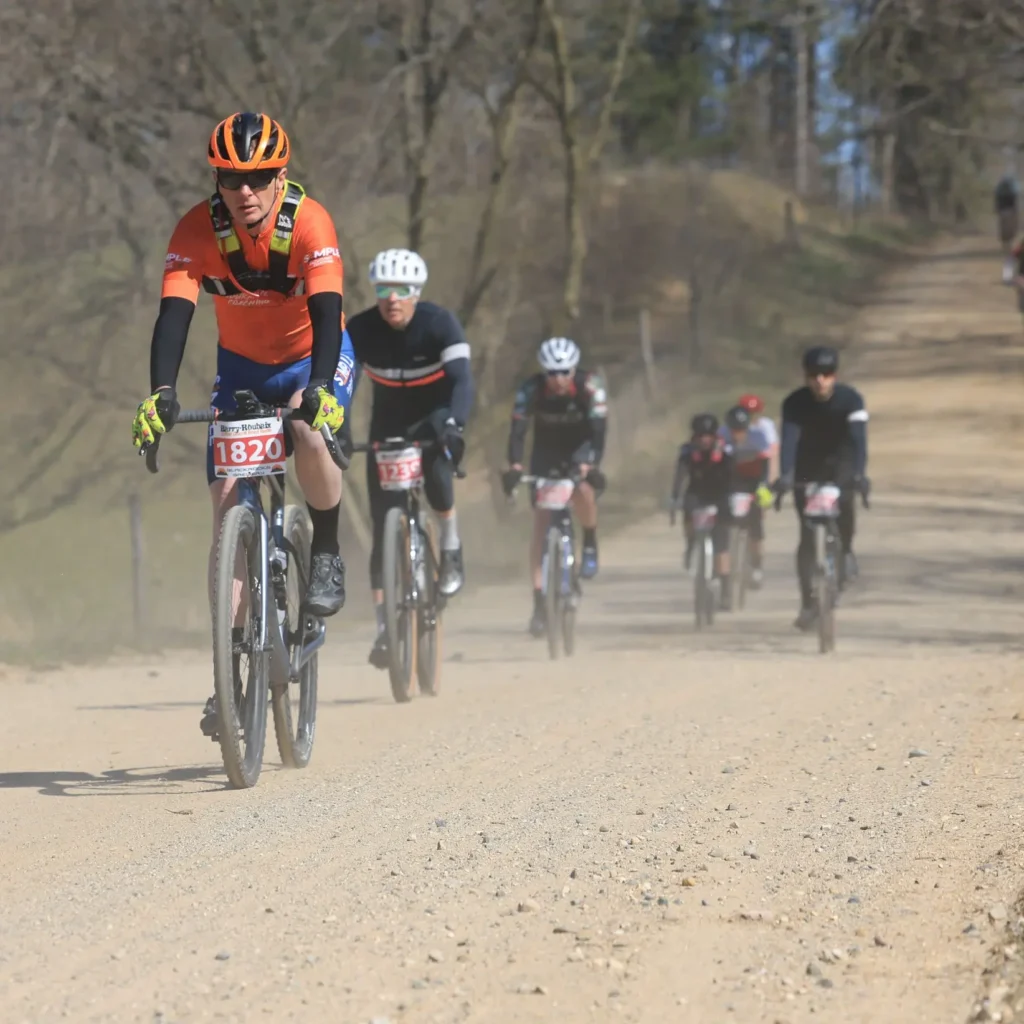By Coach Nicole Ford
Trail runners love the feeling of dirt and grass beneath their feet, but there are times when running on the road can be advantageous.
While the allure of the trails is strong, road running can enhance your training in several key ways.
To explore when it might be beneficial to hit the pavement, we consulted our trail running coach Nicole Ford.
Here’s her advice on when road running can complement your trail training.

Base Building:
Running on the road is excellent for building a solid aerobic base, especially during the off-season or at the start of a training cycle.
The even surface of the road allows for consistent pacing, which is crucial for developing endurance. Integrating road runs can help establish a strong foundation that will support more challenging trail sessions later on.
Speed Work:
When it comes to speed work, the flat, predictable surface of the road is ideal for intervals, tempo runs, and hill repeats.
Performing these workouts on the road can be more effective than on uneven trails, where technical terrain might limit your speed.
Nicole explains, “Sometimes it is easier to do your intervals, hill, or speed work on the road. That’s ok! You are still able to increase your turnover, use different muscle groups, and make great gains!”
Recovery Runs:
After a demanding trail session, a recovery run on the road offers a less intense option that still keeps you moving.
Road running reduces the risk of injury by avoiding the technical challenges of trails while helping you maintain your weekly mileage.
Winter Training:
During winter or in inclement weather, trails can become treacherous, with ice, mud, or flooding making them unsafe.
In these conditions, roads are often a safer alternative.
Nicole emphasizes the importance of safety, saying, “Sometimes those trails are frozen or flooded. One of the main goals of endurance athletes is to get to the start line uninjured and ready to perform. If you feel that the trails are unrunnable or you might risk getting injured, I would advise you to move your run to the road or a treadmill inside. Your long-term safety is more important than your weekly run.”
Race-Specific Preparation:
If your upcoming trail race includes sections on pavement or hard-packed dirt, incorporating road runs into your training can help you adapt to mixed terrain.
This preparation can prevent the shock of transitioning from trail to pavement during the race.
“It is always best advised to practice what you are going to race,” Nicole advises. “When possible, your long runs should be on trails if you are racing trails.”
Convenience:
When time is tight or trails are inaccessible, road running offers a convenient way to stay consistent with your training.
It’s easy to lace up your shoes and head out the door, making it a practical choice when you’re pressed for time.
Nicole notes, “One of the bigger advantages of running the road is convenience. You can put on your shoes and head out the door! If you are in a time crunch and only have time for a road run, run the road! A road run is better than no run.”
Balancing road and trail running in your training regimen can help you become a more versatile and resilient runner.
Whether you’re building a base, working on speed, recovering, or simply looking for a safe and convenient option, road running has its place in a trail runner’s routine.
Here are three things to know about doing your runs on the road instead of trails when you’re a trail runner:
- For intervals, base building, recovery, and convenience, it might be easier to run on the road than get to a trail.
- In the winter, sometimes trails are dangerous.
- The best way to prepare for a trail race is to run on the trails.
Need more?
Coach Nicole Ford is a trail runner and personal trainer. She specializes in supporting masters and age group trail runners achieve their ultra goals. She can be reached at [email protected]




